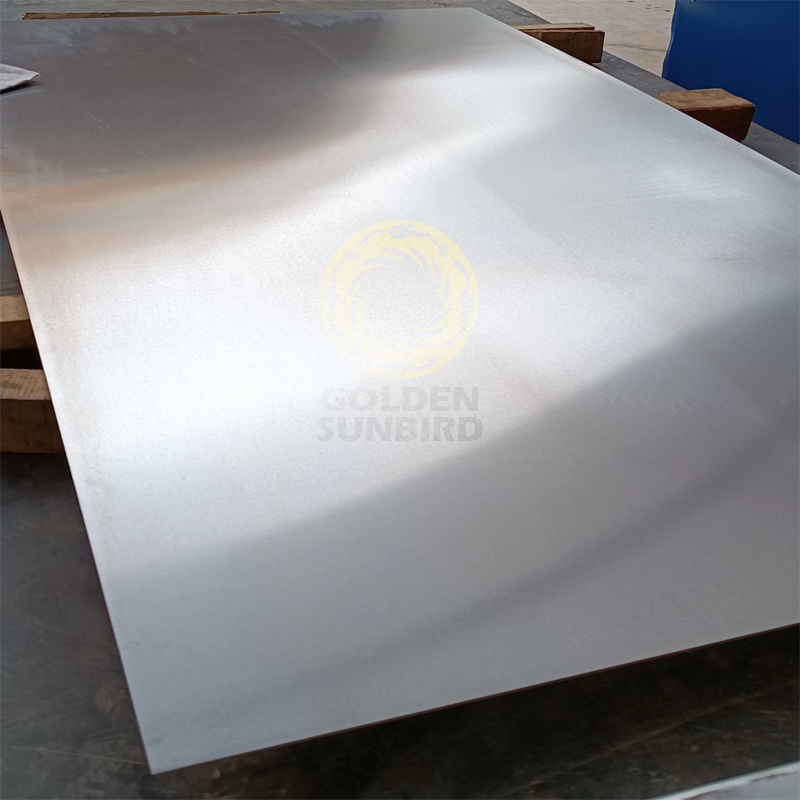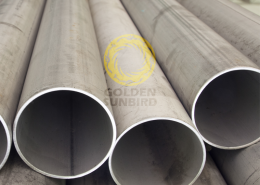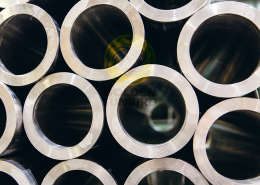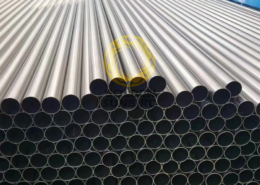ASTM B708 Tantalum and Tantalum Alloy Plate, Sheet, and Strip
- Type: Plate and Sheet
- R05200, unalloyed Ta, EB furnace or VAM, or both
- R05400, unalloyed Ta, powder-metallurgy consolidation
- R05255, Ta alloy, 90% Ta, 10% W, EB furnace of VAM, or both
- R05252, Ta alloy, 97.5% Ta, 2.5% W, EB furnace or VAM, or both
- R05240, Ta alloy, 60% Ta, 40% Nb, EB furnace or VAM
Features
ASTM B708 Tantalum and Tantalum Alloy Plate, Sheet, and Strip
R05200, unalloyed tantalum, electron-beam furnace or vacuum-arc melt, or both
R05400, unalloyed tantalum, powder-metallurgy consolidation
R05255, tantalum alloy, 90% tantalum, 10% tungsten, electron-beam furnace of vacuum-arc melt, or both
R05252, tantalum alloy, 97.5% tantalum, 2.5% tungsten, electron-beam furnace or vacuum-arc melt, or both
R05240, tantalum alloy, 60% tantalum, 40% niobium, electron-beam furnace or vacuum-arc melt
Chemical Composition (wt.%)
| Element | UNS R05200 | UNS R05400 | UNS R05252 | UNS R05255 | UNS R05240 |
| Oxygen (O) | 0.015 | 0.03 | 0.015 | 0.015 | 0.02 |
| Nitrogen (N) | 0.01 | 0.01 | 0.01 | 0.01 | 0.01 |
| Carbon (C) | 0.01 | 0.01 | 0.01 | 0.01 | 0.01 |
| Hydrogen (H) | 0.0015 | 0.0015 | 0.0015 | 0.0015 | 0.0015 |
| Niobium (Nb) | 0.1 | 0.1 | 0.5 | 0.1 | 35.0-42.0 |
| Tungsten (W) | 0.05 | 0.05 | 2.0-3.5 | 9.0-11.0 | 0.05 |
| Titanium (Ti) | – | – | – | – | 0.01 |
| Silicon (Si) | – | – | – | – | 0.005 |
| Iron (Fe) | – | – | – | – | 0.01 |
| Nickel (Ni) | – | – | – | – | 0.01 |
| Tantalum (Ta) | Remainder | Remainder | Remainder | Remainder | Remainder |
Mechanical Properties with Hardness
| Grade | Ultimate Tensile Strength (min) | Yield Strength (0.2% offset, min) | Elongation (min) | Hardness (Max Brinell) |
| R05200/R05400 | 30,000 psi (207 MPa) | 20,000 psi (138 MPa) | 25% | – |
| R05252 | 40,000 psi (276 MPa) | 28,000 psi (193 MPa) | 20% | – |
| R05255 | 70,000 psi (481 MPa) | 60,000 psi (414 MPa) | 15% | – |
| R05240 | 40,000 psi (276 MPa) | 28,000 psi (193 MPa) | 20% | – |
Technical Specifications
| Specification | Value |
| Standard | ASTM B708 Tantalum and Tantalum Alloy Plate, Sheet, and Strip |
| Grade | UNS R05400, UNS R05200, UNS R05252, UNS R05255, UNS R05240 |
| Finish | Clean, bright finish, free of defects and surface imperfections |
| Type | Plate, Sheet, Strip |
| Plate | more than 0.1853 in. (4.7mm) in thickness. |
| Sheet | 6 in. (152.4mm) or more in width and from 0.005 in. (0.13mm) to 0.1875 in. (4.76 mm) in thickness. |
| Strip | may be supplied in coil, less than 6 in. (152.4mm) in width and from 0.005 in. (0.13mm) to 0.1875 in. (4.76mm) in thickness. |
| Inspection Certificate | EN 10204 Type 3.1 (Mill Test Certificate), EN 10204 Type 3.2 (Witness Testing or 3rd Party Inspection) |
| Tests | Chemical analysis, Tensile Test, and Microstructural examination |
Key Features
Excellent Corrosion Resistance: Tantalum resists corrosion in various environments, including acids, alkalis, and salt solutions.
High Melting Point: This property makes it suitable for high-temperature applications.
Good Capacitance Properties: Tantalum’s ability to store electrical charge makes it valuable for capacitor components.
Ductility: The flat form of sheet and strip might allow for easier forming and shaping compared to tubes.
Packing
Packed in plywood boxes.
Application
UNS R05400
Material: Unalloyed tantalum, vacuum melted (or, equivalently, electron-beam melted).
Applications: R05400 is often used in the electronics industry for capacitors and semiconductors due to its high purity. It’s also used in chemical processing equipment due to its excellent corrosion resistance.
UNS R05200
Material: Unalloyed tantalum, powder-metallurgy consolidation.
Applications: Similar to R05400, this grade is found to be extensively used in electronics for manufacturing capacitors and high-power resistors. It’s also used in chemical processing for its corrosion resistance in heat exchangers, reactors, and piping applications.
UNS R05252 (Tantalum – 2.5% Tungsten)
Material: Tantalum alloy containing 2.5% tungsten.
Applications: The addition of tungsten increases its strength and corrosion resistance, making it suitable for aerospace and missile parts, chemical processing equipment, and medical devices. It’s especially valued in environments with higher temperatures and aggressive media.
UNS R05255 (Tantalum – 10% Tungsten)
Material: Tantalum alloy with 10% tungsten.
Applications: This grade has higher strength and better corrosion resistance than R05252, making it ideal for applications requiring extreme durability and resistance to chemical attack, such as in the chemical industry, aerospace, and military applications.
UNS R05240 (Tantalum – 40% Niobium)
Material: Tantalum alloy containing 40% niobium.
Applications: This alloy combines the corrosion resistance of tantalum with the added strength and lower cost provided by niobium. It is used in aerospace components, nuclear reactors, missile parts, and chemical processing equipment.








